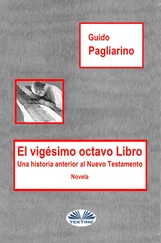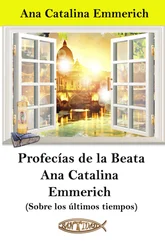Perhaps because they were so different, while being alike from birth, the happiest time on board for Pedro was the one night a month that he and Jacinto stood guard together. They were alone for eight hours and could talk without witnesses. Unlike on land, Jacinto was always sober here. Captain de Horta, so lenient in other ways, ruthlessly punished any sailor who got drunk while on night watch: the first time, fifty lashes and ten days in the brig with only stale bread and water. If repeated, the man was left at the first port without a penny, and with a bad word whispered in the ear of the local alguacil, which in their case would be, or include, the troublesome marrano.
On their last watch together, the night before they reached the Biloxi Marsh, which the Spaniards called “Marasmo,” Pedro had gone over the story of how he and Jacinto would jump ship in Veracruz, their last stop. They would bribe a public scrivener to get themselves new Christian identities and blend into the population. Pedro had been planning every detail for over a year, forcing Jacinto to save, so he, too, would have a gold onza when the time came. It gave Pedro great pleasure to tell Jacinto the story of their future together while they stood on lookout at night, half-whispering so he wouldn’t be heard by anyone else (Pedro had noticed, watching Fuenteovejuna on that makeshift stage ten years earlier, that the line prompter hiding under a cardboard half shell did not whisper as much as he half-whispered, so that only whoever was sitting on the first row might catch a word or two. The one time the prompter was forced to whisper a line again because the actor had not heard it the first time, his whisper carried all the way to the back of the courtyard theater and the audience jeered and threw chicken bones. Pedro never whispered after that.)
In Pedro’s story, after getting their new names, he and Jacinto would buy a mule and two horses, and make their way to the northern reaches of the New Spain, where one could get land for free. “You’re standing all crooked,” Jacinto said, when Pedro had them already in their haciendas, married to two Indian princesses in whose father’s land Eldorado was located (at Jacinto’s insistence, this had been added to the story a few months earlier). “You still look crooked to me.” Pedro straightened himself again. “You look like an old man,” Jacinto said, with unexpected bitterness, which he then tried to hide by grunting softly and wiggling his nose, pig-like. Pedro did not say anything else the rest of that night. He was startled by Jacinto’s sourness. He did not understand it then, and he did not understand it forty-seven years later when, on his deathbed, he asked Jacinto, who had died long ago, “But what about Tenerife?” No one around him knew who Jacinto was, and what had happened in Tenerife, or even what or where Tenerife was. It is doubtful that Jacinto himself, had he been sitting next to the seventy-two-year-old Pedro, would have known specifically what it was about Tenerife that Pedro had in mind, although Jacinto, who had an excellent memory, would have remembered all about it, or at least those parts that were important to him, and either way would have been satisfactory for him and the dying man.
On his deathbed, what Pedro remembered was the day Jacinto had revealed to him the word marrano. They were eight-year-olds, battling with tree-branch swords in front of their parents’ shacks, on the dirt road that led to the better parts of Tenerife. Jacinto, golden locks flowing, was as usual Tirant lo Blanc, and Pedro, the Sultan Mehmet. “Portez comme un joug le Croissant!” cried the fearsome Sultan. “Groin de cochon! Nourri d’immondice et de fange. Nous n’irons pas à tes sabbats , you filthy marrano,” cried back Tirant, cutting off the Sultan’s head and saving Constantinople. On his deathbed Pedro was asking Jacinto how he could have abandoned him, when the two should have been bound together forever, after Jacinto taught him that terrible word on a dusty Tenerife afternoon. The old man had forgotten by then that it had been he who had decided on that last night at the crow’s nest to leave Jacinto. Unless he now meant not leaving in a physical sense, but abandoning love, which is what he thought Jacinto had done that night when he said to him, “You look like an old man.” Those were the last words spoken that night. After that, they were both distracted until dawn by the smells of the approaching Biloxi Marsh.
Pedro had a crude map of San Cristóbal de La Habana in his hands. He was going to the church of Espíritu Santo, whose parish priest was said to be kind to those who had sincerely converted and become good Christians. He helped them start new lives free of the stigma of their origins, after satisfying himself that they were not opportunistic marranos. The church was on one side of a muddy plaza. The entire city seemed to be built on mud. The lower parts of the façades, even the palaces, were thickly caked. Streets dissolved in mud only to reappear again, even now in December, when it had not rained for a month. All the wealth of the city was indoors. Outdoors, pigs and garbage ruled, worse than in Tenerife’s poor marrano neighborhood. When Pedro had a palace like the one across from the church of Espíritu Santo, he would pave the surrounding streets and order that they be kept free of pigs and garbage.
Father Leandro was in his vegetable garden when Pedro arrived. Pedro introduced himself and tried to show him his baptismal certificate, which stated that he was baptized in the Church of the Conception in Tenerife at thirteen months of age, when in truth he’d already been thirteen years old. His father had sold his only mule to bribe the sacristan, on whose penmanship and gambling habits the town’s dwindling marrano population depended. Pedro’s father and mother had pushed him to leave as soon as he was old enough to board a ship. There was little to eat in Tenerife and even real Christians were starving and setting sail for America or Constantinople. More importantly, in those windswept islands off the coast of Africa, a small and inbred world, it was impossible to hide or pass: a marrano would always be menaced. His three sisters had stayed behind. What else could they do?
Father Leandro did not take the paper from Pedro’s hands. He did not even notice Pedro was holding it in front of his eyes. The priest was examining a sickly-looking turnip. “I can’t make them grow in this heat,” he said, through clenched teeth, reminding Pedro of Jacinto that last night at the watchtower, even if Jacinto’s teeth were white and strong while Father Leandro’s were crooked and yellowish. Pedro felt like running away. He had never seen icy-white anger before. He thought all anger was red, hot, and meaty. He was twenty-five years old, but he did not know much about the world outside the Buena Esperanza and the port whorehouses. “Take this to the kitchen,” Father Leandro said, giving him the turnip. “I will hear your confession tomorrow.”
Pedro worked in Father Leandro’s vegetable garden every day from dawn until the morning mass was over. Then he cleaned the church and the sacristy, carried water and wood to the kitchen, and spent the rest of the day doing errands. For this he was given bread when he woke up, a good, hot meal at noon, and more bread before going to bed. He ate well here, compared to the Buena Esperanza, and put on some weight. He slept in the kitchen, on top of the massive stone cookstove when it was cold and rainy, and on the floor away from it on sweltering nights. He had been lucky. The seventeen-year-old Negro boy whom he replaced had disappeared a few weeks before his arrival. Father Leandro refused to hire another Negro boy, not because he loathed Negroes as he now loudly proclaimed, but because he was heartbroken and afraid that the new one would remind him of the one who had left without a word, after Father Leandro had raised him from the age of five. “Almost like a son,” he would tell himself in the privacy of his room, looking at his sagging face in the mirror. At the time, refusing to hire a Negro servant in San Cristóbal de La Habana was tantamount to renouncing servants. It was a miracle that Pedro had appeared at the church when he did, in the opinion of the cook, a vast mulatto woman who paid no attention to Father Leandro’s rants about the ingratitude of Negroes, which she found self-evident and not in need of reiteration. “He spoiled that boy,” she told Pedro. “I always said it’d end badly.” Pedro agreed with everything she said, and was rewarded with extra bread. He was guarded, though, with her and everyone else. His first confession with Father Leandro was very satisfactory. Pedro knew his catechism inside out and gave all the right answers. He did not lie to the priest, but kept certain things to himself. These were things that he could not peel off himself any more than he could peel off his own skin. He reasoned that they must not be acquired habits or sensibilities, let alone sins, but rather traits he was born with. God had made him that way. He would shed his marrano skin, gladly, and become a Christian, but he would not toss away the self that God had created, the self that Jesus had died on the cross to redeem. Pedro would have been appalled to realize that he was being duplicitous, throwing his marrano skin to the Christian wolves so that he could keep his inner Jew safe, in some secret box. But he never did because he never told anyone those “certain things.” Not Father Leandro. Not even his wife and children. Only sometimes did he tell Jacinto in his dreams. Little by little, those “certain things,” as he himself called them, lost their names and any connection to other people, places, or history and became just who he was. When he died, he did not know he was dying as a Jew, but he did know that he was dying as himself.
Читать дальше












